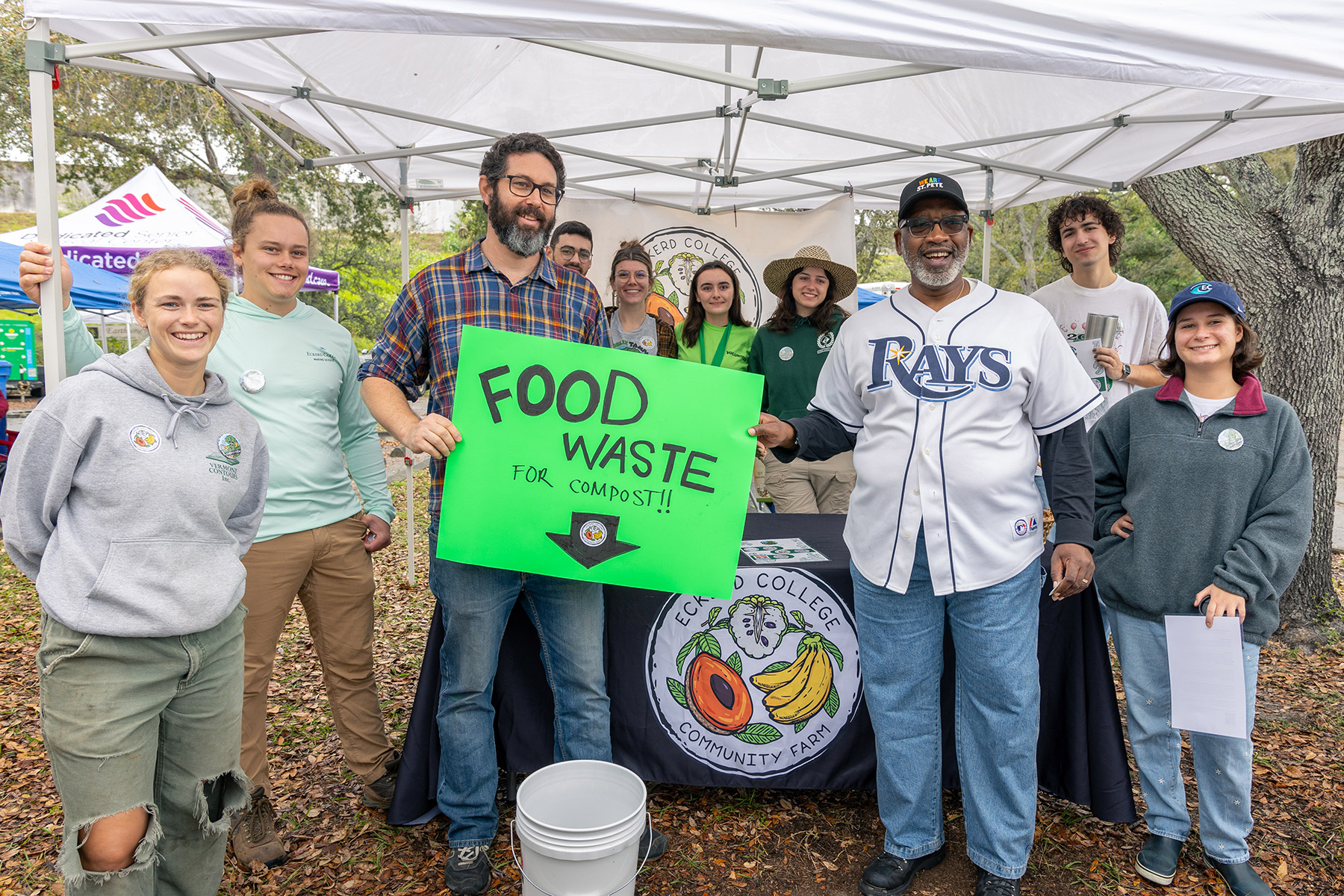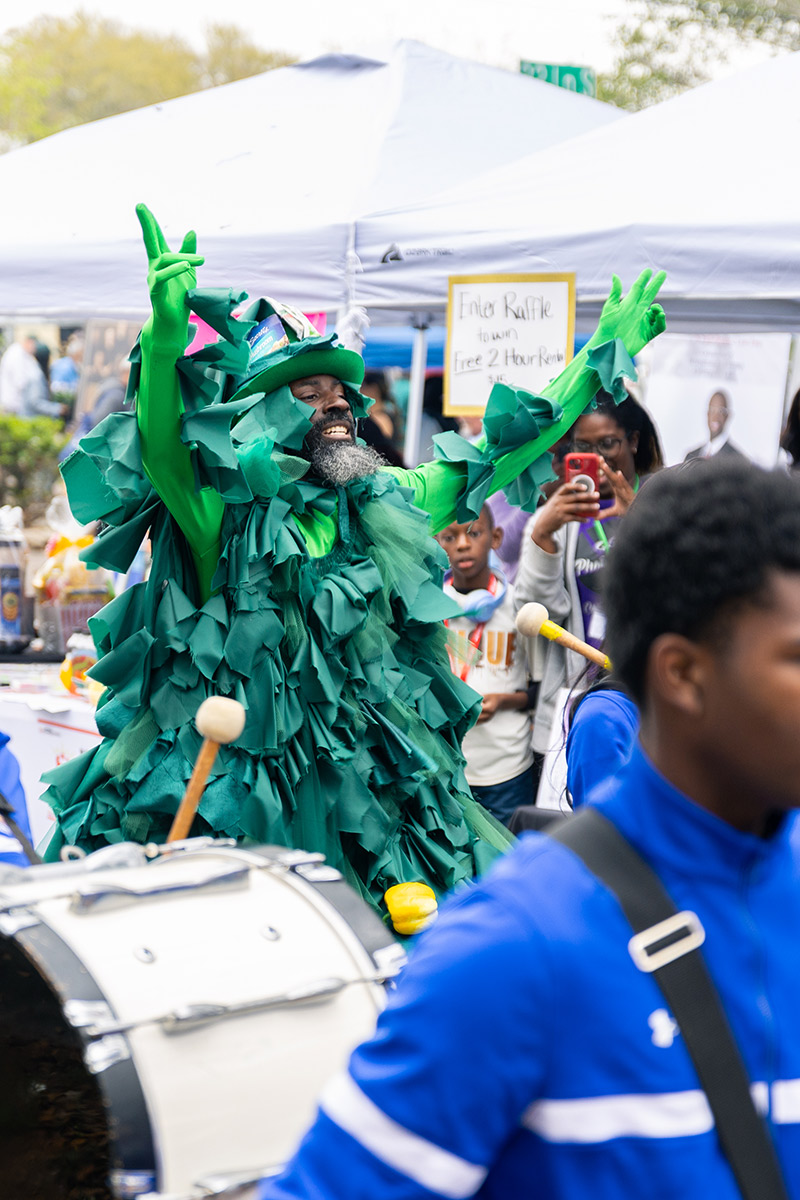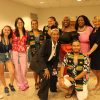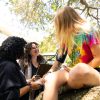On Feb. 17, rain was lurking just offshore, the crowd was growing larger by the minute, and a dozen or so Eckerd College student volunteers at the annual Publix Tampa Bay Collard Green Festival were gathering up their buckets for the unglamorous—but essential—job of collecting food waste.
Instead of headed for a landfill, for the first time the waste was destined for the Eckerd College Community Farm, where it will be used as compost.
But this was much more than a collection effort. Located on the grounds outside The Woodson African American Museum of Florida in St. Petersburg, the festival celebrates Black history and food culture, and is a 501(c)(3) nonprofit co-founded seven years ago by Boyzell Hosey and Samantha Harris, two St. Petersburg residents with deep roots in the community. “The festival is about healthy living, sharing of cultures, and people connecting with each other,” Hosey explains. “And Eckerd College has been a wonderful partner.”
Led by David Himmelfarb, Ph.D., the EC Community Farm has had a booth in the agriculture section of the festival for several years and has partnered with the St. Petersburg–based Sustainable Urban Agriculture Coalition. Himmelfarb, an environmental studies instructor and internship coordinator at Eckerd, also is the faculty director of the farm.
“This is the first time we’re trying food waste collection at a large event,” Himmelfarb says. “It’s going to be a trial by fire. It seemed like a great way for us to utilize our resources transforming food waste to compost, and to contribute to one of the most important festivals in the Tampa Bay area. And I was so pleased to get to know Samantha Harris and Boyzell Hosey and help them reach their goals.”
Composting, Himmelfarb explains, is the controlled decomposition of organic matter such as food waste in an oxygen-rich environment. Naturally occurring microbes—bacteria and fungi—break down organic matter to create compost, a nutrient-rich substance that can be mixed with soil to add fertility and promote plant health.
According to Himmelfarb, volunteers collect food waste and bring it to the farm, where student crew members create aerobic compost piles by mixing the food waste with wood chips. Students frequently monitor the temperatures of the piles and turn them roughly every other day for six weeks. After that, the compost is moved to a covered pile for an additional month to finish the decomposition process.
“Our crew knows how to compost,” Himmelfarb adds. “We turn about 25,000 pounds of food waste into compost every semester. Once that food waste is composted, we use some of it to grow collard greens at the farm, and some of it we send to places like John Hopkins Middle School, Bartlett Park and the Edible Peace Patch Project for their community gardens. So it comes full circle.”
Many of the Eckerd volunteers came from Himmelfarb’s Food Movements class. “Hopefully,” he said, “they’ll get direct experience working with community members and being able to connect what we’re doing at the farm with the community groups.”
That seems likely to happen. One of the volunteers was Mae Peterson, a senior environmental studies student from Bristol, Vermont. “It’s great to see so many people engaging in such an important event, and to feel that connection to the community.”
Added Maggie Peffer, a senior anthropology student from Columbus, Ohio, “It’s good to be able to help out in all areas of a community, and events like this are such a rich and important part of the community.”
The festival included healthcare, wellness and voter registration booths; cooking demonstrations; live music; a fleet of food trucks; and speakers—including two-time James Beard Award–winner Adrian E. Miller, author of three books on history and soul food.
“We came up with the idea for the festival in 2017 and visited the original collard green cultural festival in Lithonia, Georgia,” Hosey explains. “It was a community street festival, with a cook-off and music and entertainment. We came back home and wondered if we could pull off a festival like that in St. Pete, where we might have an opportunity to bring awareness and exposure to those who are already doing the work of helping people live healthier lives.
“As we were doing that,” he continues “there was an immediate effect within the Black community of sharing stories about collard greens. So for the first festival in 2018, we videotaped about a dozen people and asked them to tell us their fondest memories about eating collard greens. Everyone had a story.”
A former deputy editor for photography at the Tampa Bay Times, Hosey is now the senior editor of visual storytelling for ProPublica, a nonprofit organization based in New York City dedicated to investigative journalism. He says the focus now is on the long-term sustainability of the festival. “Samantha and I were in Walmart buying supplies, and we were talking with two white people who told us they washed their collard greens in a washing machine. You see that diversity reflected in the festival. It speaks of unity and sharing and good vibes.
“And Eckerd College has been there,” he adds. “We definitely value having them on board. They’re young adults who are hopefully part of the future of the festival.”
As a group of Eckerd volunteers pulled on their gloves and grabbed their buckets before making another round of the festival area, St. Petersburg Mayor Ken Welch stopped by to chat with Himmelfarb and the students. “The work they’re doing is outstanding,” Welch said of the group. “It’s something we can all learn from.”










